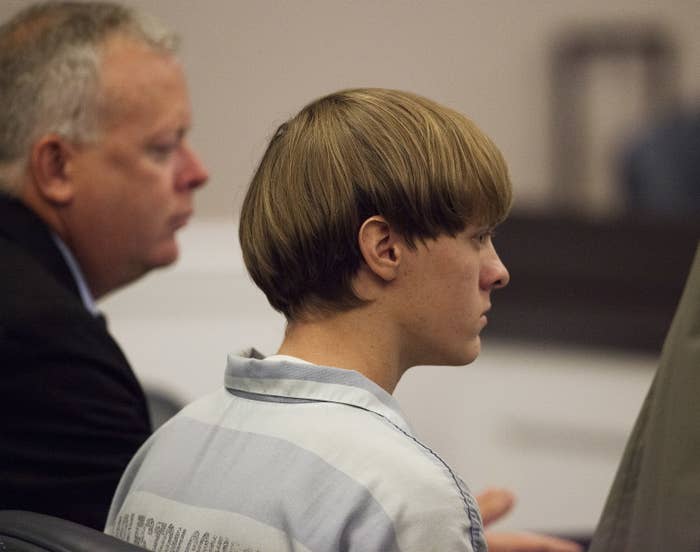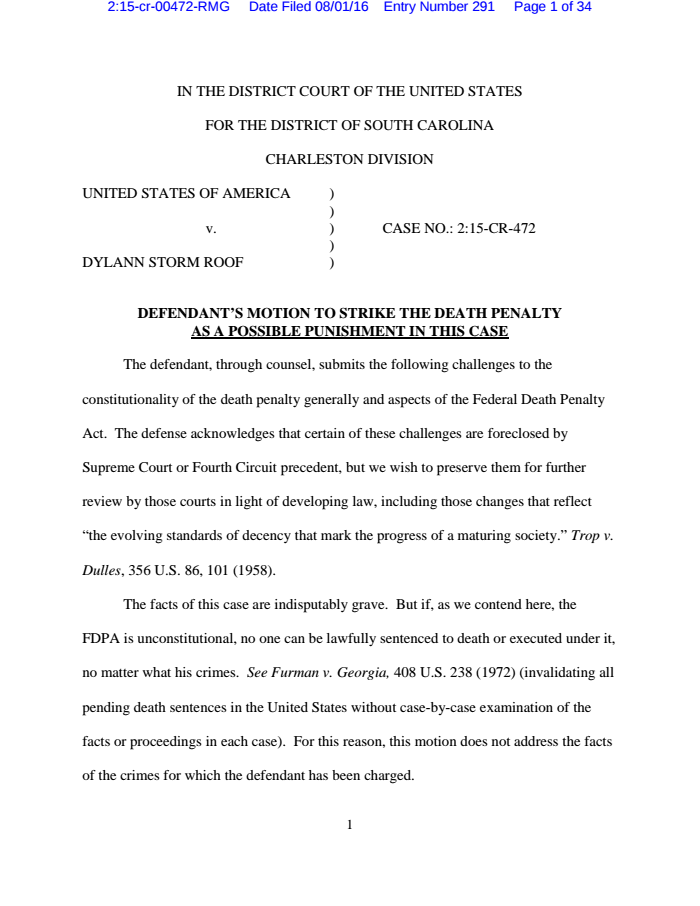
WASHINGTON — Lawyers for Dylann Roof on Monday filed a motion challenging the federal government's intention to seek the death penalty in his murder trial, arguing that the penalty is unconstitutional.
"[T]his Court should rule that the federal death penalty constitutes a legally prohibited, arbitrary, cruel and unusual punishment prohibited by both the Fifth and Eighth Amendments," lawyers write in defense of Roof, who is charged with murder for the shooting deaths of nine people inside a historically black South Carolina church this past summer.
In the filing, the lawyers argue that the death penalty itself is unconstitutional, as is the federal death penalty law.
"[T]he [Federal Death Penalty Act] may have been designed with as much care as possible under the circumstances, the capital sentencing process that the statute provides is constitutionally inadequate in practice," the lawyers write. "The results of jurors’ good-faith grappling with the law – arbitrary, biased, and erroneous death verdicts – are intolerable as a matter of due process and proportional punishment."
The challenge is only being brought, the lawyers write, because the federal government is seeking the death penalty in Roof's case — a decision announced in May — after rejecting his offer to plead guilty and accept multiple life sentences without the possibility of parole.
The federal death penalty also is under challenge in other cases, the filing notes. Most notably, a federal judge in Vermont just recently finished a nine-day hearing over issues raised by Donald Fell's lawyers about the constitutionality of the death penalty in the federal system.
In addition to the two broad constitutional challenges, Roof's lawyers are also challenging the jury selection process referred to as "death qualification" — finding a jury willing to impose the death penalty. As the lawyers note, "conscientious objectors to the death penalty are systematically excluded" from such juries.
"Because the practice of death qualifying a jury has no constitutional or statutory underpinnings, distorts the jury function, introduces arbitrariness into capital sentencing and increases the influence of racism and sexism on the death determination, there is no justification for maintaining it," the lawyers write.
The lawyers are also challenging the use of the Matthew Shepard and James Byrd, Jr. Hate Crimes Prevention Act (HCPA) in the indictment as a predicate offense to another offense for which the death penalty is a possibility, noting that the hate crimes legislation considered including the death penalty as a punishment but ultimately rejected it.
"[D]espite Congress’s deliberate decision not to provide for the death penalty in HCPA prosecutions, the government has effectively amended the statute to permit a death sentence to be imposed," the lawyers argue.
The lawyers also raise several other challenges relating to the decision to seek the death penalty for Roof's charges, as well as to the sentencing procedures at issue in a federal death penalty trial.
Earlier, in July, the lawyers had asked the hate crimes law charges themselves to be dismissed and charges of obstruction of religion to be dismissed for — they argue — violating the Thirteenth Amendment and Commerce Clause, respectively.

